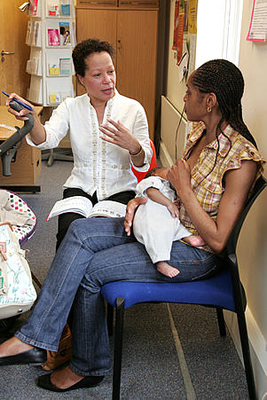Promoting Attachment and Wellbeing Part 1: Concepts


This session is the first of two in this series focusing on attachment and wellbeing. This first session will provide an overview of attachment whilst the second (Positive Parenting and Parenting Issues/Promoting Attachment and Wellbeing Part 2: Practice) will explore the range of attachment-based interventions that help to foster secure attachment.
Learning objectives
By the end of this session you will be able to:
- Define ‘attachment’
- Explain how attachment theory was developed
- Provide an overview of the essential features of attachment theory
- Summarise the key characteristics of the four attachment types
- Identify links between attachment and health and wellbeing
- Understand the relevance of attachment theory to clinical practice
This sesssion aims to help learners understand the key features of attachment theory and its relevance to their work with families particularly with regard to the way that parent-infant relationships develop and the implications of those interactions for the future health and wellbeing of the child.
Before commencing this session you should complete the following HCP session:
- Healthy Child Programme Basics/Introduction to the Healthy Child Programme (402-0016)
Having spent the majority of her working life as a health visitor, Catherine then worked as a nurse consultant in perinatal and infant mental health in a Mental Health Trust for 10 years. Catherine was a member of the guideline development group for the NICE guideline for the management of Depression in Children and was involved in the launch and implementation plan for the 2007 NICE guideline for Antenatal and Postnatal Mental Health. Catherine has always been interested in creating learning opportunities for health professionals that are interesting, accurate, informative and fun. In 2013, in collaboration with colleagues, she was involved in setting up LCB Resources Ltd, a company that produces interactive games for health and social care practitioners. Catherine is currently a full-time PhD student at Oxford Brookes University and is investigating the role of health visitors in supporting women with perinatal mental health issues.


- End of Life Care | Bereavement care | Children and...
- Posted By eIntegrity Healthcare e-Learning
- Posted Date: 2025-01-10
- Location:Online
- The session explores grieving in children. It describes a range of ways in which health professionals and families can support children who are bereaved. This session was reviewed by Jan Aldridge and Richard Kitchen and last updated in February 2022.
- End of Life Care | Bereavement care | Assessment o...
- Posted By eIntegrity Healthcare e-Learning
- Posted Date: 2025-01-10
- Location:Online
- This session outlines the areas that should be considered in a holistic assessment of carers' needs and highlights the risk factors that can impact on a carer's experience of death and bereavement. This session was reviewed by Sim Koon and Richard Kitch
- End of Life Care | Social care | Supporting people...
- Posted By eIntegrity Healthcare e-Learning
- Posted Date: 2025-01-10
- Location:Online
- This session introduces the NHS National End of Life Care Programme Framework for Social Care (Supporting People to Live and Die Well) and explores the role of social care in working with and looking after people approaching the end of life. This session
- End of Life Care | Social care | Support and care ...
- Posted By eIntegrity Healthcare e-Learning
- Posted Date: 2025-01-10
- Location:Online
- This session aims to outline the role and importance of good support and care planning for a person and their carer. This session was reviewed by Tes Smith and Richard Kitchen and last updated in February 2018.
- End of Life Care | Social care | Palliative care s...
- Posted By eIntegrity Healthcare e-Learning
- Posted Date: 2025-01-10
- Location:Online
- This session describes the role of palliative care social workers. It highlights the diversity of the role within a multidisciplinary context and describes how palliative care social workers provide a link between health and social care. This session was







